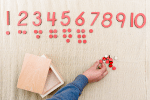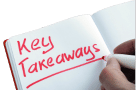Are you gearing up for a Gallup interview? Feeling a mix of excitement and nerves? Don’t worry—you’re in the right place! This guide will guide you through everything you need to know about Gallup interviews, from the basics to expert-level strategies. So, grab a cup of coffee, get comfortable, and let’s dive in!
- Introduction to Gallup Interviews: More Than Just Another Job Interview
- What is the Gallup Interview? Unveiling the Mystery
- Types of Gallup Interview Questions: Decoding the Puzzle
- Sample Gallup Interview Questions: Practice Makes Perfect
- The Gallup Interview Process: What to Expect in the Interview Process
- How to Prepare for a Gallup Interview: Your Game Plan for Success
- Gallup Interview for Stryker & Medical Sales: Selling Your Skills in the Healthcare Arena
- Gallup Interview Pass Rate: Demystifying the Numbers Game
- Gallup Phone Interview Tips: Acing the Long-Distance Connection
- Common Mistakes to Avoid: Don’t Let These Trip You Up!
- Comparison: Gallup vs Other Interview Types
- Key Takeaways: Your Gallup Interview Cheat Sheet
- Frequently Asked Questions
Boost Your Interview Skills Now
Improve your interview skills in under 10 minutes!
Join thousands of successful job seekers!

Introduction to Gallup Interviews: More Than Just Another Job Interview
Picture this: You’ve just landed an interview with your dream company. But wait—it’s not just any interview. It’s a Gallup interview. Cue the dramatic music! 🎵
But here’s the thing: while Gallup interviews might sound intimidating, they’re actually a fantastic opportunity for you to shine. Unlike traditional interviews that focus solely on your resume and experience, Gallup interviews are designed to uncover the real you—your strengths, your personality, and your potential. The Gallup interview method focuses on predicting a your future success by emphasizing innate talents rather than traditional assessments of knowledge or experience.
Why are Gallup interviews so popular? Well, companies like Stryker use them because they’re incredibly effective at predicting job performance and cultural fit. It’s like having a crystal ball, but instead of mystical powers, it uses science-backed methods to find the perfect match between candidates and roles.
So, why should you care about mastering the Gallup interview? Simple:
- It could be your ticket to landing that dream job
- It helps you understand yourself better (hello, personal growth!)
- It prepares you for a successful career by aligning your strengths with your role
Ready to become a Gallup interview pro? Let’s get started!

What is the Gallup Interview? Unveiling the Mystery
Alright, let’s demystify this beast. The Gallup interview isn’t your run-of-the-mill, “Where do you see yourself in five years?” kind of chat. It’s a whole different ball game.
Gallup, a leader in global analytics, employs a data-driven approach to improve performance and organizational effectiveness.
The Gallup Approach: Strengths-Based and Behavior-Focused
At its core, the Gallup interview is all about uncovering your natural talents and predicting how you’ll behave in real-world situations. It’s like a sophisticated personality test meets a time machine—giving interviewers a glimpse of your future performance based on your past behaviors and inherent strengths.
Key components of a Gallup interview:
- Behavioral questions: “Tell me about a time when…” (We’ll dive deeper into these later)
- Personality assessment: Questions that reveal your character traits
- Strengths evaluation: Identifying what you’re naturally good at
The CliftonStrengths Assessment: Your Personal Talent Roadmap
Ever heard of the CliftonStrengths Assessment? It’s like the Swiss Army knife of personality tests, and it plays a big role in Gallup interviews. This assessment helps identify your top talents out of 34 possible themes. Think of it as your personal talent GPS, guiding you towards roles where you’ll naturally excel.
Why is this important? Because understanding your strengths isn’t just about acing the interview—it’s about finding a job where you’ll thrive. When you’re in a role that aligns with your natural talents, work doesn’t feel like work. It feels like you’re in your element, like a fish in water or a bird in flight. Pretty cool, right?
Preparation and Mindset: Your Secret Weapons
Now, here’s the million-dollar question: Can you prepare for a Gallup interview? Absolutely! In fact, preparation is your secret weapon. But we’re not talking about memorizing canned responses or trying to game the system. (Spoiler alert: That doesn’t work!)
Instead, effective preparation for a Gallup interview involves:
- Self-reflection: Really understanding your experiences, behaviors, and strengths
- Practice: Getting comfortable with behavioral questions
- Research: Understanding the company and role you’re applying for
- Mindset: Approaching the interview with honesty and authenticity
Remember, the goal of a Gallup interview isn’t to trick you or catch you out.
It’s to uncover the real you.
So, the best strategy? Be yourself—just the most prepared, confident version of yourself! Being self-aware during your preparation can positively impact how you present your strengths and weaknesses in the interview.
Think of the Gallup interview as a conversation about your best self. It’s your chance to showcase your unique talents and experiences. Exciting, right?

Types of Gallup Interview Questions: Decoding the Puzzle
Ever feel like job interviews are a complex puzzle? Well, Gallup interviews might just be the ultimate brainteaser. But don’t worry—we’re about to give you the decoder ring! Let’s break down the types of questions you’re likely to encounter.
Behavioral Questions: Your Past Predicts Your Future
Imagine your past experiences are like a crystal ball, showing interviewers how you’ll handle future situations. That’s the idea behind behavioral questions. They typically start with phrases like: “Tell me about a time when…” and require a detailed description of the situation, task, action, and result. Other common prompts include:
- “Describe a situation where…”
- “Give me an example of…”
The STAR Method: Your Secret Weapon
When tackling behavioral questions, think STAR:
- Situation: Set the scene
- Task: Explain the challenge
- Action: Describe what you did
- Result: Share the outcome
For example: “Tell me about a time you faced a difficult customer.”
Your STAR response might be:
“At my previous retail job, an angry customer came in demanding a refund for a product we didn’t sell (Situation). I needed to defuse the situation and help the customer (Task). I listened empathetically, explained our store’s products, and offered to help find the right store for their item (Action). The customer calmed down, thanked me for my help, and even bought something from our store before leaving (Result).”
Personality Questions: The “Rate Yourself” Game
Ever played “Rate Yourself”? Well, Gallup loves this game! You might hear questions like:
- “On a scale of 1-5, how generous are you?”
- “How comfortable are you with change?”
Strengths-Based Questions: Your Superpowers Revealed
These questions often ask you to reflect on moments when you felt successful, helping to uncover how you define and achieve success. They are all about uncovering your natural talents. They might sound like:
- “What’s your greatest strength?”
- “When do you feel most energized at work?”

Sample Gallup Interview Questions: Practice Makes Perfect
Ready to flex those interview muscles? Let’s dive into some sample questions and how to tackle them like a pro.
Teamwork & Conflict Resolution
“Describe a time you worked with a difficult team member.”
“In my last project, I had a teammate who consistently missed deadlines. Instead of getting frustrated, I scheduled a private chat to understand their challenges. It turned out they were overwhelmed with their workload. We worked together to prioritize tasks and communicate better with our manager. By the project’s end, not only were we meeting deadlines, but our team communication had improved significantly.”
Why it works: This answer shows empathy, problem-solving skills, and leadership initiative.
Decision-Making & Problem-Solving
“How do you make decisions when you lack all the necessary information?”
“I believe in making informed decisions, even with limited information. For example, when faced with a tight deadline, I gathered all available data and consulted with knowledgeable colleagues. Then, I weighed the potential risks and benefits of each option. If time allows, I might conduct small tests or simulations. Ultimately, I make the best decision possible with the information at hand, while remaining flexible to adjust as new information comes to light.”
Why it works: This response demonstrates a structured approach to decision-making, collaboration, and adaptability. By providing a specific example, it illustrates the practical application of data in decision-making.
Goal Orientation
“On a scale of 1-5, how much do you like to win?”
“I’d say I’m a 4. I’m highly motivated by achievement and enjoy the satisfaction of meeting and exceeding goals. However, I also value collaboration and believe that true winning often means team success, not just individual triumphs. Can I share a quick example of how this played out in my last role?”
Why it works: This answer shows ambition balanced with teamwork, and offers to provide a concrete example.
Strengths-Focused
“What is your greatest strength?”
“My greatest strength is my ability to simplify complex information. In my current role as a data analyst, I often need to present findings to non-technical stakeholders. I’ve developed a knack for translating data into compelling stories and visual aids that anyone can understand. This has led to faster decision-making and better cross-department collaboration. I’m excited about the possibility of bringing this strength to your team.”
Why it works: This response clearly articulates the strength, provides context, and shows the positive impact it has had.
Remember, these are just examples. The key is to use these as inspiration to craft authentic responses that reflect your unique experiences and strengths. Practice articulating your answers out loud, but avoid memorizing them word-for-word. You want to sound natural and genuine in your interview.
Boost Your Interview Skills Now
Improve your interview skills in under 10 minutes!
Join thousands of successful job seekers!

The Gallup Interview Process: What to Expect in the Interview Process
Alright, let’s pull back the curtain on the Gallup interview process. By knowing what’s going to come will help calm those pre-interview jitters and boost your confidence. Ready? Let’s go!
The Phone Interview: Your First Hurdle
Picture this: You’re in your comfiest clothes, your lucky socks are on, and your phone rings. It’s go time! Most Gallup interviews kick off with a phone call. But this isn’t your average “tell me about yourself” chat.
What to expect:
- Duration: Typically 60 minutes
- Question Count: Brace yourself for a rapid-fire session of 50-75 questions
- Pace: Think of it as the speed dating of job interviews – quick, to the point, and designed to reveal the real you
Pro tip: Find a quiet spot with good reception. Nothing kills your mojo like a dropped call or background noise!
The Rapid-Fire Nature: Think Fast, But Stay Cool
Ever played “20 Questions”? Well, this is like that game on steroids. The rapid-fire nature of Gallup interviews is designed to:
- Get your instinctive responses (no time to overthink!)
- Cover a wide range of topics and traits
- Keep you on your toes (literally and figuratively)
Remember: There’s no need to panic. Take a deep breath before each answer, and don’t be afraid to ask for clarification if you need it.
The Pass/Fail Factor: No Pressure, Right?
Gallup interviews are typically pass/fail. But before you break out in a cold sweat, remember this:
The goal isn’t to trick you or trip you up. It’s to uncover the authentic you and see if you’re a good fit for the role and company culture.
How are you assessed? While the exact criteria are kept under wraps (where’s a good spy when you need one?), generally, they’re looking at:
- Consistency in your answers
- Alignment between your responses and the job requirements
- How well your natural strengths match the role
Remember: Being yourself is key. Trying to game the system or give “perfect” answers often backfires. Authenticity for the win!

How to Prepare for a Gallup Interview: Your Game Plan for Success
Alright, future interview champ, it’s time to get your game face on. Here’s your ultimate preparation playbook:
Know Your Strengths: Become Your Own Biggest Fan
First things first: You can’t ace an interview about your strengths if you don’t know what they are. Time for some self-discovery!
- Take the CliftonStrengths Assessment: This isn’t just another online quiz. It’s a powerful tool that can reveal your top talents.
- Reflect on Your Experiences: Think about times when you were in your element. What were you doing? What came naturally to you?
- Ask for Feedback: Sometimes others see strengths in us that we overlook. Ask trusted colleagues or friends what they think you excel at.
Pro tip: Create a “brag sheet” listing your top strengths and concrete examples of how you’ve used them. It’s not boasting if it’s true!
Practice Behavioral Questions: Your Time Machine to Success
Remember those “Tell me about a time when…” questions? They’re your chance to shine! Here’s how to prep:
- Use the STAR Method: We covered this earlier, but it’s worth repeating. Situation, Task, Action, Result. Practice structuring your stories this way.
- Record Yourself: Yes, it might feel awkward, but hearing yourself can help you refine your responses and boost confidence.
- Mix It Up: Practice with a variety of questions. The more scenarios you can comfortably discuss, the better prepared you’ll be.
Be Ready for Rapid-Fire: Quick Thinking is Your New Superpower
The fast pace of Gallup interviews can be daunting. Here’s how to keep your cool:
- Practice Quick Responses: Have a friend ask you random questions and practice answering concisely.
- Embrace the Pause: It’s OK to take a breath before answering. A short pause is better than a long, rambling response.
- Stay Focused: Each question is a fresh start. Don’t let your mind linger on previous answers.
Stay Calm and Confident: Your Mindset Matters
Remember, nervousness is just excitement in disguise. Here’s how to channel those butterflies:
- Positive Visualization: Imagine yourself acing the interview. Visualization can boost confidence and performance.
- Practice Power Poses: Sounds silly, but standing like Superman for a few minutes before your interview can actually boost confidence.
- Remember Your Worth: You’ve been invited to interview because they see potential in you. You’ve got this!
Preparation is key, but don’t over-rehearse. The goal is to be prepared and confident, not robotic. Let your authentic self shine through.

Gallup Interview for Stryker & Medical Sales: Selling Your Skills in the Healthcare Arena
So, you’ve got your sights set on Stryker or another medical sales powerhouse? Let’s equip you with the tools to shine in this specialized Gallup interview setting.
The Stryker Approach: Where Gallup Meets Medical Innovation
Stryker, like many top medical device companies, uses Gallup interviews to find candidates who aren’t just skilled, but are also a perfect culture fit. Here’s what you need to know:
- Focus on Resilience: The medical sales field is challenging. Be ready to discuss how you bounce back from setbacks.
- Highlight Continuous Learning: Medical technology evolves rapidly. Showcase your ability to stay updated and adapt.
- Emphasize Ethical Decision-Making: In healthcare, integrity isn’t just important—it’s critical.
Sample Questions for Medical Sales Candidates
“Describe a time when you had to learn a complex product quickly.”
Why they ask this: Medical devices are often intricate. They want to know you can get up to speed fast.
“In my previous role, we launched a new cardiac monitoring system. I immersed myself in the technical specs, shadowed our R&D team, and even observed a surgery where it was used. Within two weeks, I was confidently presenting the product to physicians, relating its features to patient outcomes they cared about.”
“How do you handle objections from potential clients?”
Why they ask this: Medical professionals are discerning customers. They want to know you can navigate tough conversations.
“I see objections as opportunities to understand the client’s needs better. Recently, a surgeon was skeptical about switching to our new laparoscopic tool. Instead of pushing back, I asked questions about their current challenges. This led to a productive discussion where I could address each concern with specific product benefits and ultimately secure the sale.”
“Tell me about a time you prioritized a patient’s needs over a sale.”
Why they ask this: Ethical behavior is paramount in medical sales.
“Last year, a hospital was interested in our premium wound care product. However, after discussing their patient demographics and budget constraints, I realized our mid-range product would actually serve their needs better. I recommended the more suitable option, even though it meant a smaller commission for me. This honesty strengthened our relationship, leading to a broader partnership down the line.”
Pro Tip for Medical Sales Gallup Interviews
Remember, in medical sales, you’re not just selling a product—you’re contributing to patient care. Weave this understanding into your responses to show you grasp the bigger picture of the industry.

Gallup Interview Pass Rate: Demystifying the Numbers Game
Feeling the pressure? Let’s talk about those pass rates and how you can tip the odds in your favor.
The Elusive Pass Rate: What We Know
Here’s the thing: exact pass rates for Gallup interviews are about as easy to find as a needle in a haystack. Companies tend to keep this information close to the vest. However, we can make some educated guesses:
- Industry estimates suggest that roughly 15-20% of candidates successfully pass the Gallup interview process.
- Remember: This isn’t meant to discourage you! It’s to emphasize the importance of preparation.
Factors Influencing Success Rates
- Preparation Level: Well-prepared candidates naturally fare better.
- Self-Awareness: Understanding your strengths and weaknesses is key.
- Job-Candidate Fit: Sometimes, it’s simply about finding the right match.
- Authenticity: Trying to game the system often backfires. Be genuine!
Boosting Your Chances: The Road to Success
- Do Your Homework: Research the company and role thoroughly.
- Practice, Practice, Practice: Familiarize yourself with the Gallup style questions.
- Stay Calm: Nervousness can impact your responses. Use relaxation techniques before the interview.
- Be Consistent: Your answers should paint a cohesive picture of who you are.
- Follow-Up: After the interview, send a thank-you note reiterating your interest and fit for the role.
Remember: The Gallup interview isn’t just about passing or failing. It’s about finding the right fit for both you and the company. A “pass” on paper doesn’t mean much if the role isn’t right for you in the long run.

Gallup Phone Interview Tips: Acing the Long-Distance Connection
Phone interviews come with their own set of challenges. But fear not! With these tips, you’ll be a phone interview pro in no time.
Effective time management is crucial during a phone interview to ensure you can answer all questions thoroughly and concisely.
The Unique Challenges of Phone Interviews
- No Visual Cues: You can’t rely on body language or facial expressions.
- Potential for Distractions: Both for you and the interviewer.
- Technical Issues: Poor connection can disrupt the flow.
Your Phone Interview Success Strategy
Find the Perfect Spot:
- Choose a quiet location with good reception.
- Use a landline if possible for better sound quality.
- Have a backup phone charged and ready, just in case.
Prepare Your Space:
- Keep your resume, notes, and a glass of water within reach.
- Use a hands-free option so you can gesticulate naturally (it comes through in your voice!).
- Have a pen and paper ready for notes.
Master the Art of Verbal Nods:
- Use phrases like “I see,” “That’s interesting,” to show you’re engaged.
- But don’t overdo it—you don’t want to interrupt the interviewer.
Paint a Picture with Your Words:
- Without visual aids, your descriptions need to be vivid and concise.
- Use concrete examples and paint scenarios the interviewer can easily imagine.
End on a Strong Note:
- Prepare questions for the interviewer.
- Clarify the next steps in the process.
- Express your continued interest in the role.
Pro Tip: Stand up during the interview. It can help you feel more confident and energetic, which will come through in your voice.
Remember, a phone interview is still an interview. Dress professionally—it puts you in the right mindset. And please, for the love of all that is holy, don’t chew gum or eat during the call!
With these sections, you’re now armed with specialized knowledge for medical sales interviews, a realistic view of pass rates, and expert tips for phone interviews. You’re well on your way to Gallup interview success! Stay tuned

Common Mistakes to Avoid: Don’t Let These Trip You Up!
Even the most prepared candidates can stumble. But don’t worry—we’re about to shine a spotlight on these potential pitfalls so you can sidestep them with ease.
Overthinking: The Silent Interview Killer
You know that voice in your head that analyzes every word? During a Gallup interview, it’s time to tell it to take a backseat.
Overthinking leads to:
- Delayed responses (remember, this is often rapid-fire!)
- Unnatural, forced answers
- Missing the point of the question entirely
How to avoid it:
- Trust your instincts—your first thought is often your most authentic one.
- Remember, there’s no “perfect” answer. They want to know the real you.
- Practice mindfulness techniques to stay present in the moment.
Pro tip: If you find yourself overthinking, take a deep breath and refocus on the question at hand. It’s OK to say, “Let me think about that for a moment” to give yourself a brief mental reset.
Trying to Be Someone You’re Not
Ever heard the phrase “Fake it ’til you make it”? Well, in a Gallup interview, that advice goes right out the window!
Why it’s a problem:
- Inconsistent answers can raise red flags
- You might come across as inauthentic
- It’s exhausting to maintain a facade
How to avoid it:
- Be honest about your strengths and weaknesses
- Use real-life examples from your own experiences
- If you don’t know something, it’s OK to say so
Remember: They’re not looking for perfection. They’re looking for the real you.
Neglecting Specific Examples
Vague, general answers are about as satisfying as a meal without salt. Don’t leave the interviewer hungry for more!
Why it’s a problem:
- Generic responses don’t showcase your unique experiences
- It can seem like you’re avoiding the question
- You miss opportunities to highlight your strengths
How to avoid it:
- Prepare specific anecdotes for common behavioral questions
- Use the STAR method to structure your responses
- Quantify your achievements where possible
Example: Instead of saying “I’m good at problem-solving,” try: “Last year, I identified a bottleneck in our production process that was costing us $10,000 a month. By implementing a new inventory system, we reduced waste by 30% and increased efficiency by 25%.”
Forgetting It’s a Two-Way Street
An interview isn’t just about answering questions—it’s about finding the right fit for both parties.
Why it’s a problem:
- You might miss crucial information about the role or company
- It can make you seem disinterested or unprepared
- You lose the opportunity to assess if the job is right for you
How to avoid it:
- Prepare thoughtful questions about the role, team, and company
- Show genuine interest in the interviewer’s experiences
- Use questions to highlight your knowledge and enthusiasm
Remember: An engaged candidate is an attractive candidate!

Comparison: Gallup vs Other Interview Types
Ever wonder how Gallup interviews stack up against other interview styles? Let’s break it down!
The Comparison Table: Your At-a-Glance Guide
| Aspect | Gallup Interview | Traditional Interview | Case Interview |
| Focus | Strengths and behaviors | Experience and qualifications | Problem-solving skills |
| Question Style | Rapid-fire, often repetitive | Open-ended, chronological | Hypothetical scenarios |
| Duration | Usually 30-60 minutes | Varies, often 30-60 minutes | Often 30-45 minutes per case |
| Preparation | Self-reflection, behavioral examples | Company research, resume review | Practice cases, frameworks |
| Evaluation | Fit with role and company culture | Skills match and experience | Analytical and communication skills |
| Typical Industries | Various, including healthcare and tech | All industries | Consulting, finance, tech |

Key Takeaways: Your Gallup Interview Cheat Sheet
The Gallup interview is your opportunity to showcase your unique talents and find a role where you’ll truly thrive. Approach it with confidence, authenticity, and enthusiasm. You’ve got this!
As you head into your Gallup interview, remember: you’re not just answering questions, you’re opening the door to a role where your natural strengths can shine. Take a deep breath, trust in your preparation, and let your authentic self lead the way to success.

Frequently Asked Questions
Boost Your Interview Skills Now
Improve your interview skills in under 10 minutes!
Join thousands of successful job seekers!




